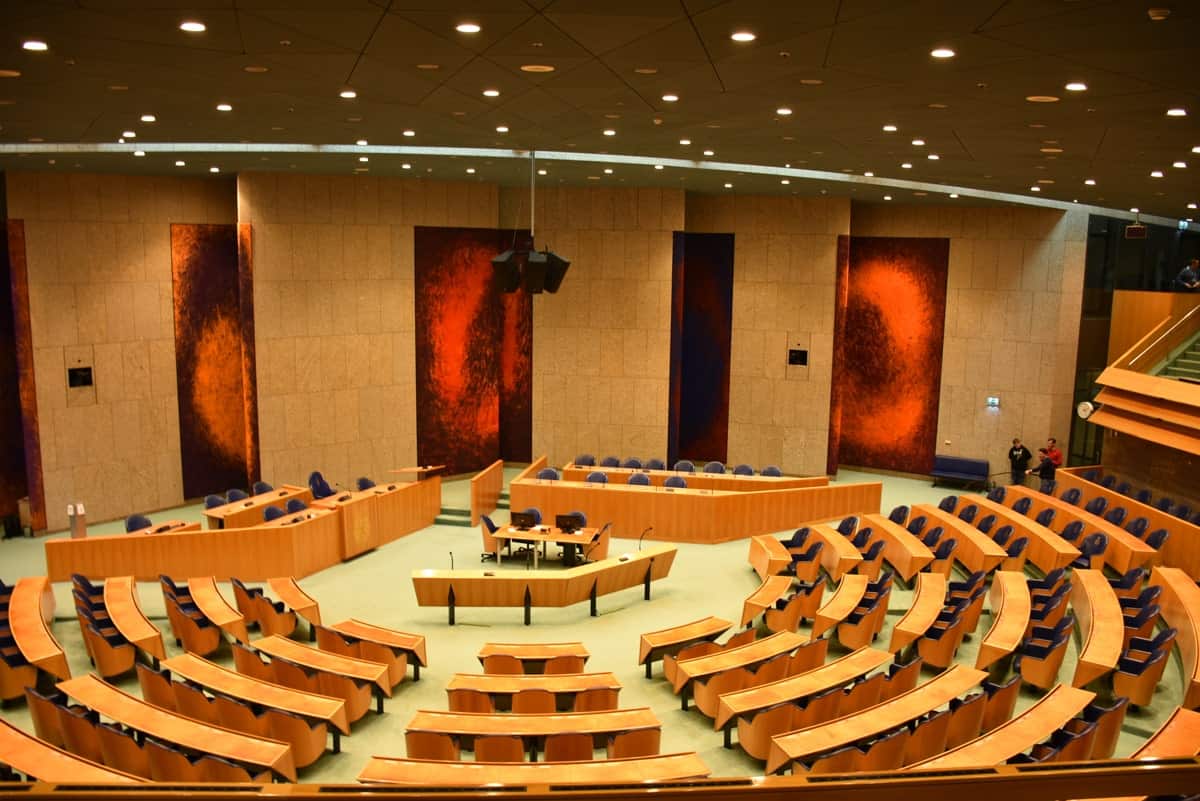Law Franchise – dated July 23, 2020 – mr. AW Dolphin
The Franchise Act will have a significant impact on both franchisors and franchisees. The law will have a major impact not only on existing franchise relationships, but especially when entering into new franchise relationships.
What the Franchise Act can mean in outline is explained in this document.
Contents
1. The recruitment of franchisees
2. The cooling-off period for the aspiring franchisee
3. Prospective franchisee must conduct research (or have it done).
4. Mandatory Assistance by the Franchisor
5. Right of Consent of Franchisees
6. No competing formula, without permission
7. Restriction of the prohibition of competition after the cooperation has ended
8. More emphasis on good agreement goodwill
9. Mandatory consultation between franchisee and franchisor
10. When do the new rules apply?
11. Violation of the Franchise Act
1. The recruitment of franchisees
The Franchise Act requires franchisors to provide all relevant information when recruiting franchisees. The Franchise Act aims to prevent franchisees from being insufficiently informed by franchisors. For example, if a franchisee has to deal with disappointing results, a discussion may arise as to whether the franchisor has communicated all relevant information to the franchisee in advance and should not also have pointed out risks. This concerns the following information that must be provided prior to the conclusion of the franchise agreement:
1. the draft franchise agreement, including appendices;
2. a statement of the content and scope of regulations regarding fees, surcharges or other financial contributions to be paid by the franchisee;
3. the manner in which and the frequency of consultation between franchisees and franchisor;
4. the extent to which and the manner in which the franchisor can compete with the franchisee;
5. the extent to which, the frequency with which and the manner in which the franchisor can take note of turnover-related data that may be important for (the business operations of) the franchisee;
6. the financial position of the franchisor and its group companies insofar as reasonably relevant to the conclusion of the franchise agreement;
7. financial information about the intended location of the franchisor or, if none exists, about one or more comparable companies, where the franchisor must indicate why this company is comparable;
8. all other points of which the franchisor knows or can reasonably suspect that they are important for the conclusion of the franchise agreement.
It will be very important for the franchisor and the franchisee to properly document which questions they asked each other and how they were answered. Uncertainty about this is a source of conflict. After providing the relevant information, the franchisor must observe a reflection period for the prospective franchisee.
2. The cooling-off period for the aspiring franchisee
A term applies to the provision of the information when entering into a franchise agreement. Four weeks prior to entering into a franchise agreement, all potentially relevant information must be communicated to the prospective franchisee. Within that period, the proposed cooperation may not be changed to the detriment of the franchisee. Therefore, no (other) agreement may be concluded between the parties to the detriment of the franchisee. The purpose of the provision is to create a cooling-off period for the aspiring franchisee. This gives the aspiring franchisee the time and tranquility to carefully consider the offer. Not only can this prevent hasty and ill-considered decisions, the time can also be used to seek advice from experts. During the cooling-off period, the prospective franchisee has the opportunity to fulfill his obligation to investigate.
3. Prospective franchisee must conduct research (or have it done).
The Franchise Act emphasizes the individual responsibility of the prospective franchisee to ensure that he understands all information provided by the franchisor. The prospective franchisee is expected to screen the information submitted by the franchisor, such as the franchise agreement. Prospective franchisees should also use this cooling-off period to, for example, properly calculate the financial estimates and to obtain proper information about liability risks. Franchise agreements are also often difficult to read for non-attorneys, so that franchisees only realize afterwards what they have committed themselves to.
4. Mandatory Assistance by the Franchisor
The franchisor is obliged to provide ‘assistance as well as commercial and technical support’ to the franchisee during the term of the franchise agreement. Providing assistance may include providing support to the franchisee through continued commercial and technical assistance by the franchisor to achieve a win-win situation. This obligation can be referred to as a duty of care on the part of the franchisor and could be all the more onerous the greater the franchisee’s dependence on the franchisor.
5. Right of Consent of Franchisees
In almost all formulas, the house style changes periodically, investments in software and inventory are required, or other measures are prescribed by the franchisor. However, franchisees are faced with additional costs, which are not always anticipated. Franchisees have a certain right of consent, insofar as it has not been agreed that the franchisor can unilaterally change the franchise agreement above a certain (financial) limit, or a threshold value. If the unilateral power to amend is too vague, it seems that this power does not apply. The law stipulates that changes that the franchisor wants to make above the threshold may only be made with the consent of the franchisee. The formulation of the unilateral amendment clause is therefore of great importance.
If franchisees have united, the majority of such an association can also agree to the change envisaged by the franchisor. All franchisees are then bound by the intended changes.
6. No competing formula, without permission
In principle, the franchisor will not be allowed to operate any other formula that fully or largely corresponds to the franchise formula operated by the franchisees. This requires the consent of the franchisees. Franchisees do not get very excited if the franchisor starts operating a different format that may compete with the existing format. However, there may also be advantages for franchisees, such as economies of scale and lower purchase prices.
7. Restriction of the prohibition of competition after the cooperation has ended
A prohibition of competition after the end of the cooperation is only possible if it has been agreed in writing, if it protects the franchisor’s know-how, is limited to one year after the end of the cooperation and is limited to the franchisee’s area of work as it applied under the franchise agreement .
8. More emphasis on good agreement goodwill
The law stipulates that there must be rules about the goodwill of the franchise company at the end of the franchise agreement. Sometimes, in practice, there is no agreement at all about goodwill. If a franchisee has built up a customer base, but is no longer allowed to use this customer base after the end of the franchise agreement, then the question is how to deal with this. The franchisor can take advantage of this by taking advantage of this customer base built up as the company, for example, as a branch
9. Mandatory consultation between franchisee and franchisor
The law stipulates that franchisors and franchisees hold consultations about the cooperation at least once a year. It has not been precisely determined who should take the initiative for consultation, but it seems that in any case the franchisor must make sufficient efforts to sit down with the franchisee. A legal obligation to consult will in any case be an incentive to meet periodically at the table. All the points mentioned above could be discussed during the consultation to be held.
It should be the intention of the franchisee and franchisor not only to avoid misunderstandings and disagreements by conducting consultations, but above all to explore creatively how the cooperation can lead to even more success. A statutory obligation to consult could contribute to this. On the other hand, there is also a danger in the regulations. With the legal provisions at the ready, differences of opinion may also escalate more easily if the intended consultation does not lead to solutions.
10. When do the new rules apply?
The law stipulates that the changes take effect immediately, once the law has been introduced. This therefore applies to both existing agreements yet to be concluded.
However, there are exceptions for the provisions on (number 8) the goodwill payment, (number 7) non-competition and (number 5) the consent requirement for changes in the franchise formula. These provisions only apply to franchise agreements concluded before the entry into force of the new Franchise Act two years after the entry into force of the Act. If the law enters into force on January 1, 2021, the relevant rules will therefore apply from January 1, 2023 to franchise agreements concluded before 2021. The Franchise Act applies in full to new franchise agreements concluded after 1 January 2021.
11. Violation of the Franchise Act
If the rules of the Franchise Act are not observed, there are consequences. If an agreement contains provisions that conflict with the Franchise Act, then those provisions are invalid (null and void).
If a franchise agreement is concluded in violation of the Franchise Act, that agreement will usually be voidable by the franchisee. The franchisee usually has three years to cancel the concluded franchise agreement in whole or in part, as a result of which the services rendered would have to be undone on both sides. The obligations to provide certain information during the term and, for example, the prohibition to encourage payments or investments to be made during the cooling-off period, make it more obvious that violations of these obligations, in particular through the doctrines of tort ( violation of the law), error or perhaps to address fraud or acquisition fraud.

Other messages
No violation of standstill obligation
The Northern Netherlands District Court ruled in a judgment dated ...
Belgian Council of Ministers adopts decision to protect independent supermarket entrepreneurs
All-powerful supermarket organizations Partly due to the recent privatization of ...
Mitigation of fine due to ‘dominant position’ of franchisor
Mitigation of fine due to 'dominant position' of franchisor ...
It is a non-competition clause at the end of the lease
In the judgment of 26 March 2024, ECLI:NL:GHSHE:2024:1035, the Court ...
Looking ahead: Bottlenecks at the end of the franchise agreement
Of course, everyone starts a collaboration with good courage. But ...
Not just a successful appeal to incorrect forecasts
Not just a successful appeal to incorrect forecasts Introduction ...







